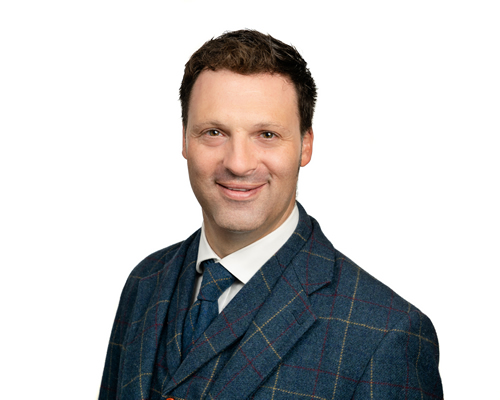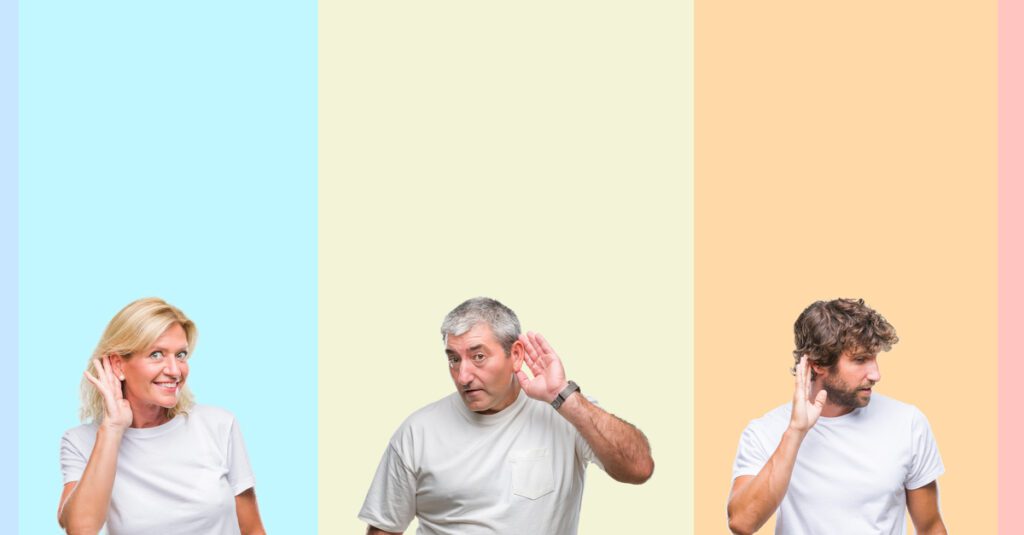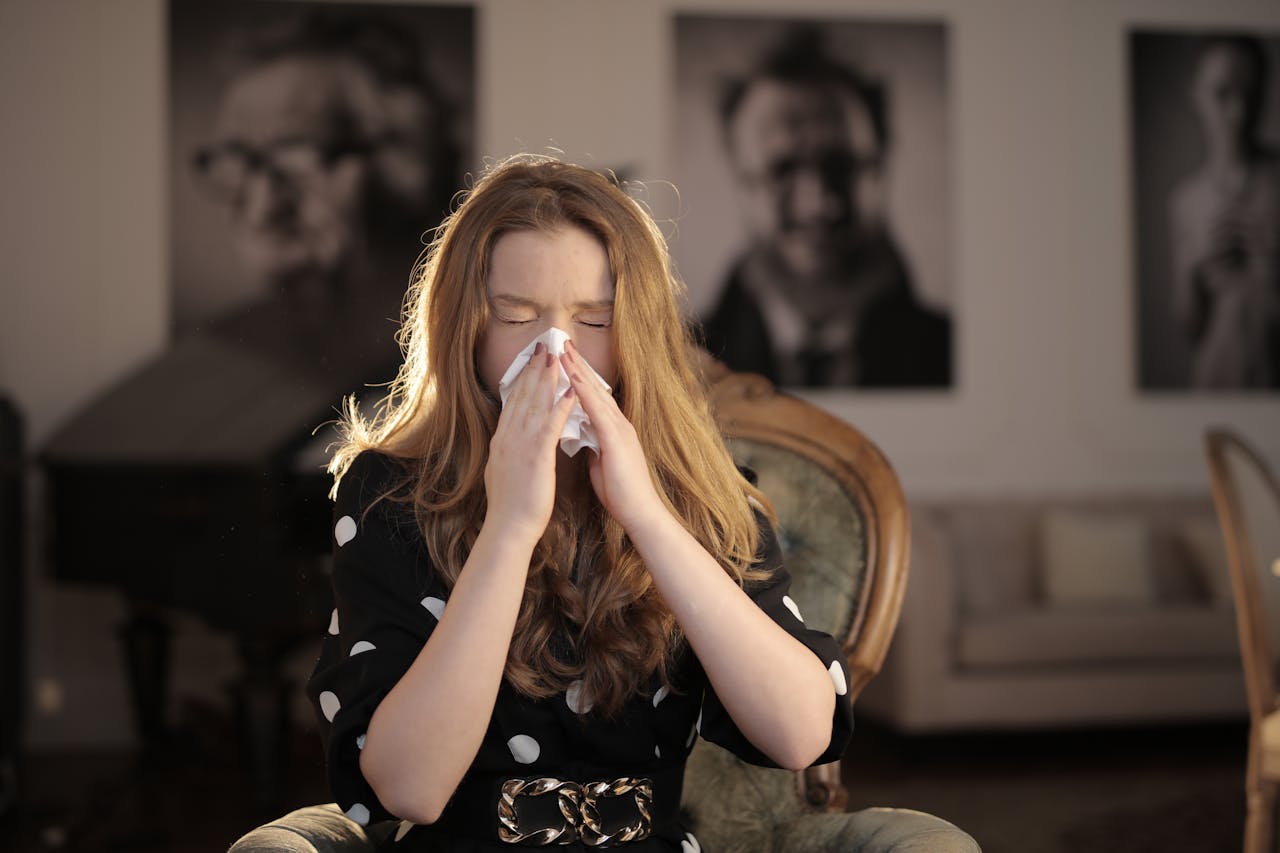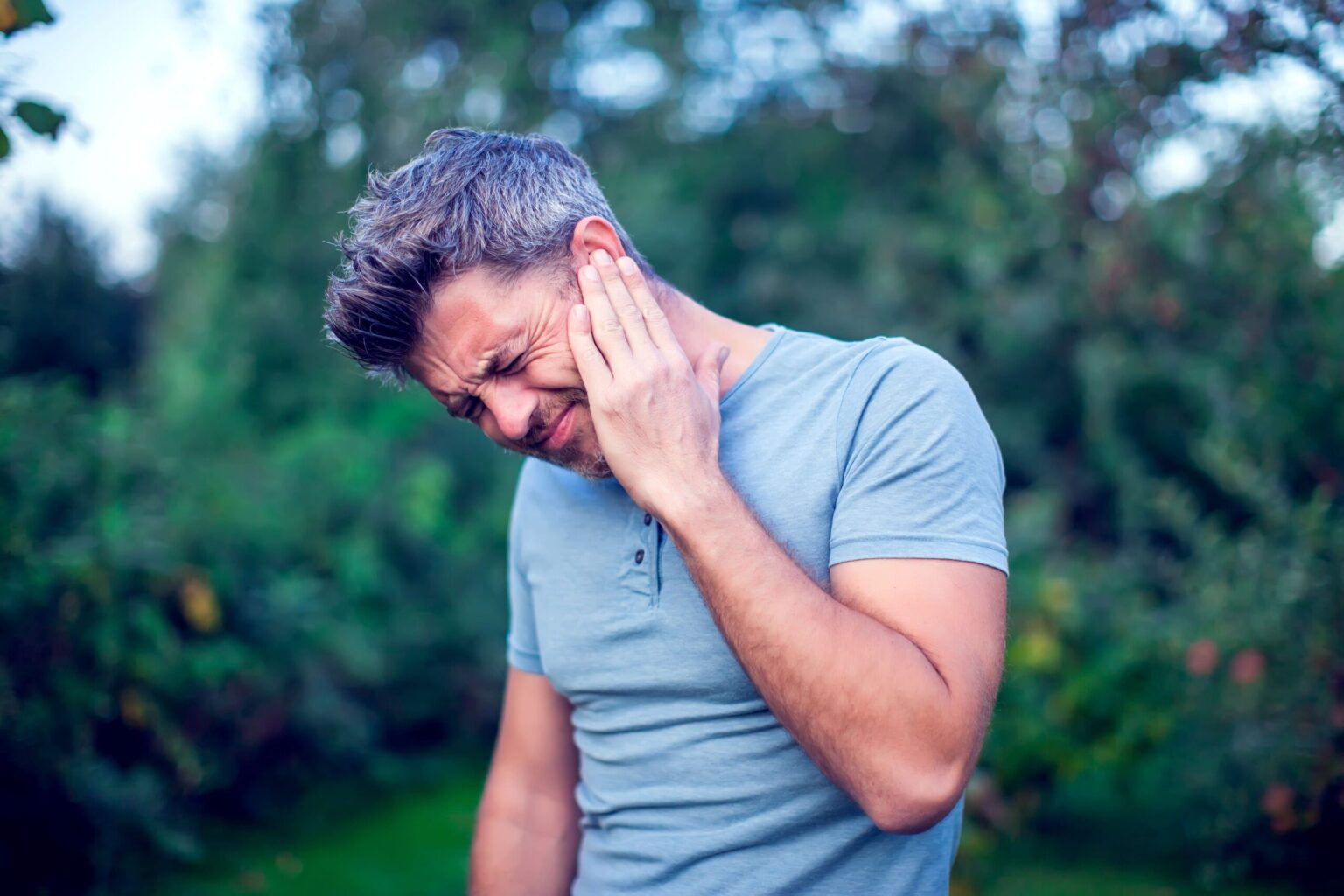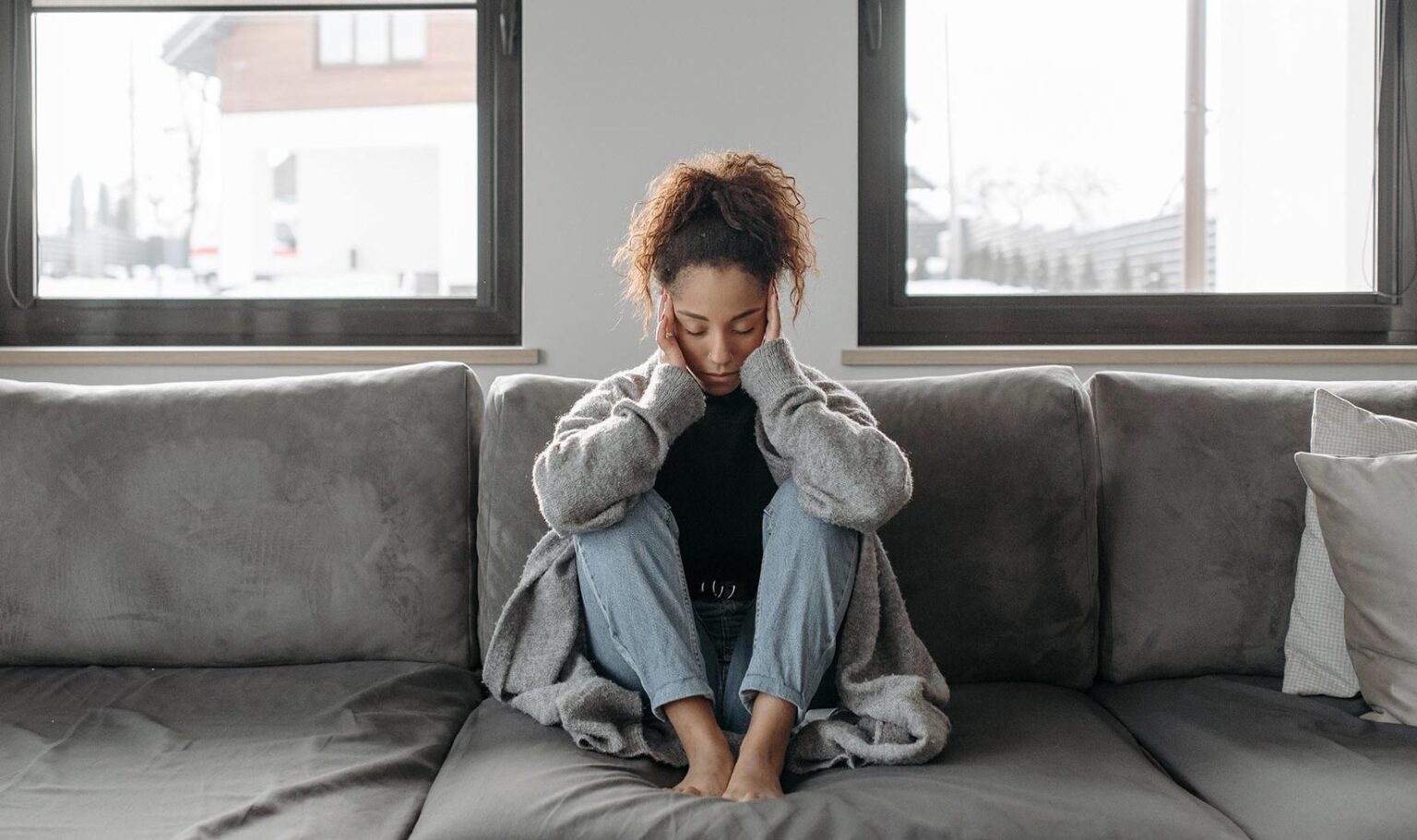Hearing loss is exceptionally common. Around 5% of the world’s total population has severe and disabling hearing loss. In the UK alone, 12 million people suffer from hearing loss, which is roughly one in six.
These are concerning statistics, but it’s not all doom and gloom. Hearing loss can be prevented. Many causes of hearing loss, as well as causes of deafness, are actually preventable and treatable. If you’re worried about your hearing and are searching for ‘how to prevent hearing loss,’ the experts at Regain Hearing are here to offer some advice.
7 Ways to Prevent Hearing Loss In Old Age
Avoid Loud Noises Where Possible
One of the biggest causes of hearing loss that is not related to the natural ageing process is noise-induced hearing loss. Noise-induced hearing loss is exactly what it sounds like. When exposed to loud noise like loud noises at a club, a gunshot, the sound of heavy machinery, or anything else excessively loud, your hearing can suffer.
The receptors in your ear that pick up noise are incredibly delicate. They’re not designed to absorb loud noises. Simply put, loud noises damage the cells and membranes in your ear that pick up vibrations and relay that information to your brain to create sound.
Overloading these cells with too much vibration kills them. Once they’re gone, they’re usually gone for good. Sometimes exposure to loud noise is impossible to avoid, often in the case of accidents. However, if you’re in a profession where you’re around loud noise a lot, be sure to wear protective equipment like earplugs or earmuffs. If loud noise is part of your social or personal life, we recommend you still consider hearing protection where possible, and stay away from excessive noise at any opportunity.
A one-time experience can result in a lifetime of hearing loss, but you can prevent hearing loss simply by keeping control over the kind of sounds your ears are exposed to.
Related reading: Loud noises and ruptured eardrums
Be Aware of Headphone Volume
According to WHO (World Health Organisation), young people are experiencing hearing loss at much higher rates than they ever used to. Why? Because of personal music devices. Noise-induced hearing loss is on the rise because people, particularly younger people, are plugging in and listening to loud music through headphones on a daily basis. This kind of hearing loss is totally preventable, and studies have shown awareness campaigns to be effective slowing down rising hearing loss rates.
So how do you prevent hearing loss in headphones? The simple solution to preventing hearing loss due to the use of headphones is to reduce volume. Hearing damage is caused by the overload of the receptors in the ear, which means a lower volume can allow everyone to safely enjoy music without risk. It should be noted that both single sessions of very loud noise, and prolonged sessions of slightly quieter noise, can result in noise-induced hearing loss. Blearing out loud sounds just once in a while isn’t going to reduce your risks. Your ears are sensitive, and damage can occur quickly. Always mind aware that if you’re exposed to loud music through headphones, you could cause irreparable damage.
Related Reading: Can headphones cause hearing damage?
Look Out for Hearing Loss Symptoms
Your body will actually give you a few early warning signs that you’re experiencing hearing loss. These symptoms include:
- Tinnitus (a persistent ringing in your ear)
- Difficulty hearing people talk
- Misunderstanding words
- Difficulty concentrating on conversations.
If you experience the early signs of hearing loss, it’s important not to ignore them. It’s very difficult to reverse hearing loss once it’s occurred, but it’s much easier to plan treatments that slow effects or stop them altogether. Catching hearing loss early, as with so many other medical conditions, can be a massive advantage in preventing further problems.
Know Your Family’s Medical History
Prevention of hearing loss can often be about knowledge. If you can look into your family history and spot patterns of hearing loss, you can be aware of what kinds of problems you might be up against. Armed with this information on family background, you can find ways to reduce or prevent hearing loss, rather than suffering the same fate.
Monitor Your Physical Health
Your hearing and ear health is very closely tied to the health of your body, in particular, we’re talking about your central nervous system. The ear is linked to your brain through a very complex system of nerve signals, and if this system is damaged, hearing loss will occur. Hearing loss prevention can be as much about looking after your physical health as it is about looking after your actual ears.
Heart disease, uncontrolled diabetes, smoking and nutritional deficiencies can all affect the health of nerves and result in hearing loss. Protect your hearing by protecting your body. Loud sounds aren’t the only risk to your ability to hear, your general wellbeing is, too. Exercise, a balanced diet, and management of health conditions all go a long way to preventing the symptoms of hearing loss.
Clean Your Ears Safely
The build-up of earwax can create a form of very treatable hearing loss. In effect, the wax blocks your ear canal and stops noise reaching your inner-ear receptors. The simple solution is to clear out your ears, but this can actually lead to even worse hearing loss if not done properly. You can actually perforate your eardrum using cotton buds, which can result in loss of hearing, or you can push wax further in, compacting the wax and making the problem worse.
To prevent hearing loss caused by earwax the best thing to do is use a solution that dissolves ear wax that you can buy at your local pharmacy. You can then wash the wax out. If this proves ineffective, earwax removal from professionals is recommended to prevent hearing loss.
Be Mindful of Medication Side-Effects
We would never suggest you avoid taking medicines that you need. However, medication can have side-effects that damage or impair your hearing. If your medication can impact your inner-ear health or cause damage to the nerves that your brain uses to communicate with hearing receptors, we suggest you discuss your options with your doctor. Preventable hearing loss may be avoided by simply changing your medications to a different but just-as-effective treatment. Never stop taking medication without talking to your primary physician, even if you suspect it is damaging your hearing.
What do our experts say?
“Hearing loss is often irreversible, so it’s vital to protect your ears from excessive noise exposure. Simple actions, like wearing earplugs in noisy environments and moderating headphone volume, can make a significant difference in preserving your hearing for life.” Lindsay Fletcher, (RHAD), (BSHAA), FdA
Frequently asked questions
How do you prevent hearing from getting worse?
If your hearing has already started to fail, you’ll need to take the steps above to stop it from worsening. To prevent your hearing from getting worse, avoid exposure to loud noises, reduce the volume when using headphones, and wear ear protection in noisy environments. Regular hearing check-ups can also help detect issues early. Additionally, maintaining a healthy lifestyle, including not smoking and managing conditions like diabetes, can protect your hearing.
Can hearing loss be reversed?
Most types of hearing loss, particularly those caused by noise exposure or ageing, are unfortunately irreversible. However, early detection and intervention can help manage the condition and prevent further deterioration. In some cases, medical treatment or surgery may be effective for certain types of hearing loss, such as those caused by infections or blockages.
You can read more here: Can hearing loss from headphones be reversed?
Do hearing aids prevent hearing loss?
Hearing aids do not prevent hearing loss, but they can significantly improve quality of life by amplifying sounds, making it easier to communicate and engage in daily activities. While they cannot restore hearing, they help manage the effects of hearing loss and may slow down its impact on your cognitive and social well-being by keeping your brain actively engaged in processing sounds.

